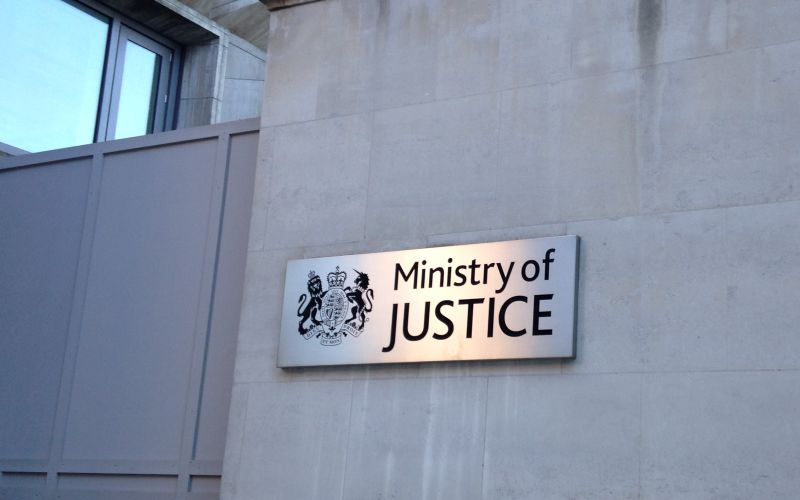Lawyers and campaigners have raised fresh concerns about the government’s approach to providing legal advice to people who need help with discrimination and special educational needs (SEN) cases, after ministers abandoned efforts to award new contracts in those areas.
The Ministry of Justice (MoJ) had been seeking organisations to take on contracts to provide advice from 1 September on discrimination and education cases through the Civil Legal Advice (CLA) service.
But it has now announced that it has abandoned those efforts because there were not enough “compliant” bids from organisations seeking the new contracts.
There are now fears that the government’s difficulty in finding organisations willing to take on the CLA services from September could make it even harder for disabled people to secure the legal advice they need.
Following the passing of the Legal Aid, Sentencing and Punishment of Offenders Act (LASPO) in 2013, it became possible to seek government-funded advice and assistance on discrimination and SEN issues only through the CLA telephone “gateway”.
But campaigners say the introduction of the telephone gateway has had a dramatic negative impact on the ability of disabled people – such as those with communication-related impairments, mental health conditions or learning difficulties – to access legal advice and support.
Jeanine Blamires, who gave evidence two years ago to the House of Lords Equality Act 2010 and disability committee about barriers to justice caused by the government’s legal aid reforms, said this week that she believed CLA was “chronically underfunded and from personal experience struggles to meet disabled needs regarding reasonable adjustments”.
She said: “I did not receive any reasonable adjustments to access the telephone helpline, making access to the specialist support ineffective and practically impossible.
“I asked for reasonable adjustments several times; I was not listened to.”
She said that the reforms to legal aid “look like the final piece in the removal of access to justice for disabled people, and that should scare everyone”.
The Equality and Human Rights Commission (EHRC) has previously raised concerns about the impact of the telephone gateway on disabled people’s access to justice.
And it told the UN’s special rapporteur on the rights of persons with disabilities in 2015 that it considered the reforms to legal aid in LASPO “raise issues for the protection and promotion of disabled people’s substantive rights” under the UN disability convention and “undermine access to redress in relation to these rights”.
Rebecca Hilsenrath, EHRC’s chief executive, said: “Cancelling the procurement process is an opportunity for the government to reconsider their approach to Civil Legal Advice services.
“Our disability report, Being Disabled in Britain, found that telephone advice can be an inappropriate means for accessing information, especially for those who struggle to communicate over the telephone.
“This is an opportunity for the government to listen to stakeholders and ensure any new provisions address these concerns, remove barriers and ensure appropriate access to advice, and therefore to justice, to those who seek it.”
Although the government has promised that reasonable adjustments will be made for disabled people seeking to use the telephone gateway, research by the Public Law Project (PLP) has suggested that it has been a “barrier to access to justice”.
It points out that Legal Aid Agency figures published late last year show that the numbers of people receiving face-to-face advice through the gateway in discrimination cases had fallen to zero in 2016-17, with only one education case.
In a statement, PLP said: “We would suggest it is time for the Ministry of Justice to recognise that the ‘gateway’ and associated services do not deliver access to justice or value for money.
“Our strongly held view is that the MoJ should abandon the mandatory telephone gateway for these areas of law.”
A Legal Aid Agency (LAA) spokesman said: “The LAA is cancelling the procurement process being run specifically for CLA education and discrimination services from 1 September, following receipt of insufficient compliant tenders.
“We have advised affected organisations of this decision.
“We are putting plans in place to ensure continued provision after 1 September, and will set [out] our approach shortly.”
The Ministry of Justice claims that the vast majority of discrimination cases have been progressed effectively through the mandatory gateway since its introduction in 2013.
It believes that the gateway offers the same level of service as face-to-face advice, while also benefiting from extended opening hours, while any client who needs face-to-face support will always be offered it.
And it claims that the figures showing that the number of people receiving face-to-face advice through the gateway in discrimination cases had fallen to zero in 2016-17 proves that this “remote access” is working.

 Disabled students set to protest over cuts in support
Disabled students set to protest over cuts in support Disabled peers speak of ‘daily fight’ against access barriers in House of Lords
Disabled peers speak of ‘daily fight’ against access barriers in House of Lords Mind faces discrimination claims after internal probe calls for multiple improvements on equality
Mind faces discrimination claims after internal probe calls for multiple improvements on equality